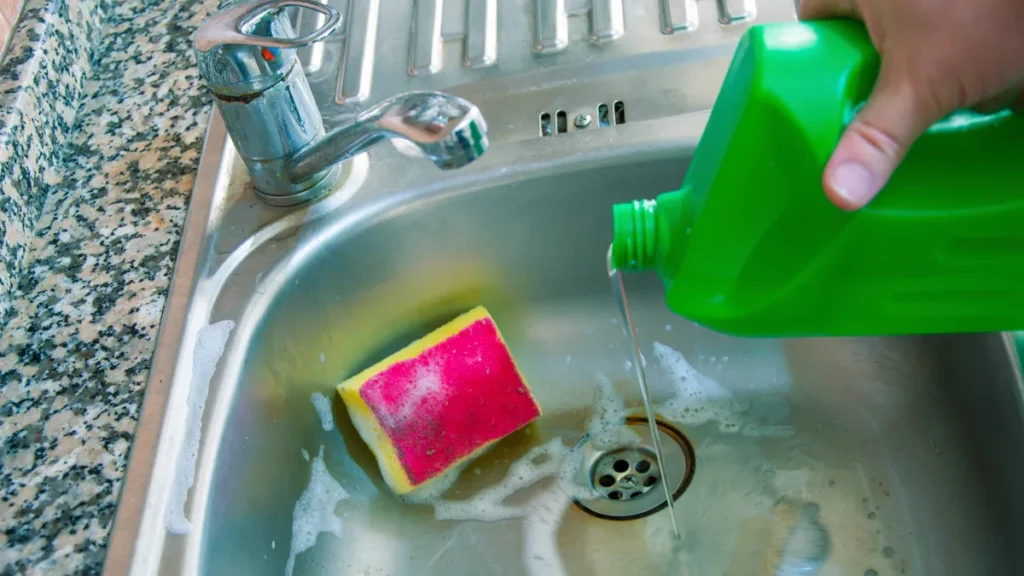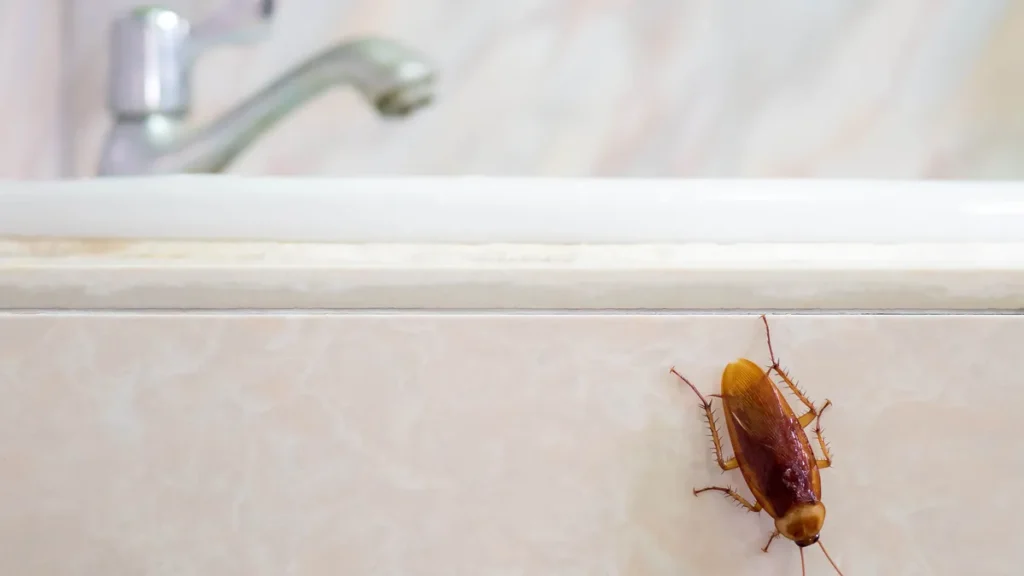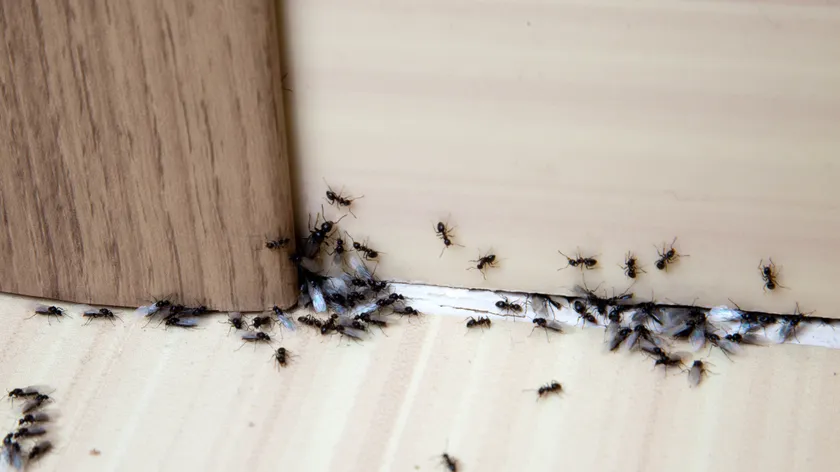Don’t kill roaches with this common cleaner Seeing a cockroach near your drains is never a pleasant sight — and chances are, where there’s one, there may be more. Knowing how to get rid of roaches fast and safely is essential.
These pests are attracted to warm, damp places, which makes bathroom and kitchen drains a common entry point as they search for food and water.
The real concern? Cockroaches reproduce quickly, and a few can soon turn into a full-blown infestation.
While many people’s first instinct is to pour powerful cleaning agents down the drain, experts are now warning against using one particular go-to liquid to kill roaches.
Not only is this a common mistake, but it’s often ineffective—and could actually cause more harm than good.
So, what is this widely used household cleaner that might be doing more damage than you think?
Avoid pouring bleach down the drains.

Bleach is a go-to household cleaner for disinfecting surfaces and eliminating germs and bacteria. While it’s powerful enough to kill roaches on contact, pouring it down the drain isn’t the solution to a cockroach problem.
“Using bleach in drains is unlikely to be an effective method for eradicating cockroaches,” says Daniel Baldwin, an entomologist at Hawx Pest Control.
“Bleach can kill roaches it comes into direct contact with, but it’s unlikely to reach the root of the infestation. Cockroaches tend to hide deep inside pipes, drains, and tight crevices—places bleach often can’t reach.”
The strong scent of bleach might deter roaches temporarily, but it won’t get rid of them entirely. In fact, they’re likely to just relocate to another area in your home.
Best Ways to Keep Cockroaches Away

The most important tip? Don’t pour organic waste or grease down your drain—that’s basically feeding pests.
“A smarter approach is to use boiling water mixed with dish soap to kill roaches on contact and dissolve the grease and biofilm where they hide—but only if your pipes aren’t PVC,” says Nicole Carpenter, President of Black Pest Prevention.
She also recommends scrubbing away organic buildup with baking soda and vinegar to disrupt the scent trails roaches use. For a deeper clean, enzyme-based drain cleaners work well to break down organic gunk, and there are even special enzymatic foams made specifically to target drain pests.

Frequently Asked Questions
What is the common liquid I should never pour down the drain?
Grease or cooking oil. Pest experts warn that pouring it down the drain creates a food source and nesting ground for roaches and other pests.
Why does grease in the drain attract roaches?
Grease sticks to the inside of pipes, forming a layer of biofilm. This not only traps food particles but also creates an ideal breeding ground for cockroaches.
Can roaches really live inside drains?
Yes. Roaches can crawl through plumbing and nest in drains where it’s warm, dark, and full of organic material they can feed on.
What should I do if I accidentally poured grease down the drain?
Immediately flush the drain with boiling water and dish soap (if safe for your pipe type). Then follow up with enzyme-based cleaners to break down any remaining residue.
Is it safe to pour boiling water down any drain?
No. Avoid pouring boiling water into PVC pipes as the heat can cause them to warp or crack. Stick to hot tap water or consult your plumber if unsure.
What natural methods help clean out roach-attracting residue?
A mix of baking soda and vinegar is effective for scrubbing away organic buildup and disrupting the scent trails that roaches follow.
What are enzyme-based drain cleaners and how do they help?
These cleaners use natural enzymes to digest organic matter like food particles, grease, and sludge in your pipes—removing what attracts roaches.
Are chemical drain cleaners effective against roaches?
Not really. Most chemical drain cleaners are designed to clear clogs, not kill pests. They may not address the biofilm and food residue that draws roaches in.
Can I use bleach to kill roaches in the drain?
Bleach may kill a few roaches on contact, but it won’t remove grease or biofilm effectively. It can also damage your plumbing and harm the environment.
How often should I clean my drains to prevent roaches?
Ideally, once a week with natural solutions like hot water, dish soap, or enzyme cleaners. Monthly deep cleanings are also helpful for long-term prevention.
What signs suggest roaches are coming from the drain?
If you notice roaches emerging from the sink or bathtub, especially at night, or smell a musty odor near drains, pests could be nesting in your pipes.
Are there professional solutions for drain-infesting roaches?
Yes. Pest control companies offer special enzymatic foams and drain treatments that target roach nests and eliminate biofilm buildup more effectively than DIY methods.
Conclusion
When it comes to battling a roach infestation, your drain might be the last place you think to check—but it’s one of their favorite hiding spots. Pouring grease or cooking oil down the drain may seem harmless, but it actually creates the perfect breeding ground for these pests. Roaches are drawn to the organic buildup, and once they settle in, getting rid of them becomes much harder.
To stay one step ahead, avoid dumping greasy liquids, and instead keep your drains clean using boiling water (if safe for your pipes), dish soap, baking soda, vinegar, or enzyme-based cleaners. By cutting off their food and nesting sources, you’ll make your home far less inviting to unwanted guests. Small changes in kitchen habits can go a long way toward preventing a full-blown infestation.


